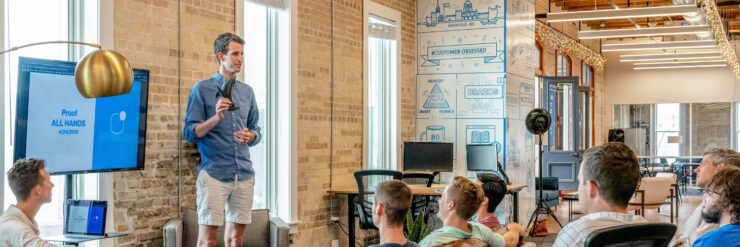Recently, HR leaders have been discussing a lot about enterprise learning. There’s an ongoing debate regarding how it has changed so far and will continue to change in the future.
A few years back, it was all about employing tried-and-tested methods to boost the learning and development (L&D) of employees. But, now, it’s a completely different scenario.
Why experimentation is the future of enterprise learning?
Learning leaders have realized that always relying on tried-and-tested methods for L&D functions isn’t going to work. They must come out of their comfort zones and start experimenting with different kinds of learning methods available.
Things change with time. There’s no guarantee that the learning methods that work today will also work in the future. That’s why leaders must stay adaptable and carry out continuous assessments to find out the right type of learning for their employees and organization. Focusing on experimentation and iteration will surely help in doing the same.
Experimentation is also about letting go
L&D teams put a lot of hard work during experimentation. They put time and effort into identifying and implementing learning methods. However, when these methods stop working, they must learn to let go. Resisting letting go can be quite natural but they must do it to make room for new learning methods.
Here are a few tips that may help to let go of the L&D functions that don’t work.
Understand that learning methods are short-lived
The first thing you need to do is understand.
You need to understand that learning methods are short-lived and it’s completely natural to cut off things that don’t work.
Certain factors like culture, sunk costs, inertia or contracting may pressurize companies to keep these solutions alive even if they aren’t used or working. But you need to remove them.
Use a strategic pause
If you’re wondering what a strategic pause is, then it is nothing but stopping a bit from offering learning programs. Doing this will help you to rework your offerings and evaluate if they are actually needed.
If you find programs that may not be working, you can offboard them without much resistance. The technique is particularly helpful to organizations whose team is uncomfortable with experimentation.
Delegate the decision-making responsibility to someone else
Well, by someone else, we mean other business units. If it is still difficult for your L&D team to let go of a certain method, you can assign the responsibility to other business functions.
They can follow the same techniques we discussed earlier to keep or let go of the learning methods. This will ensure that correct decisions are made without being too emotional.
To conclude
Employee development in the near future requires experimentation. So, it is likely that more and more organizations will take an experimental approach to enterprise learning. This will ensure that the needs of the organization as well as employees are met effectively.








